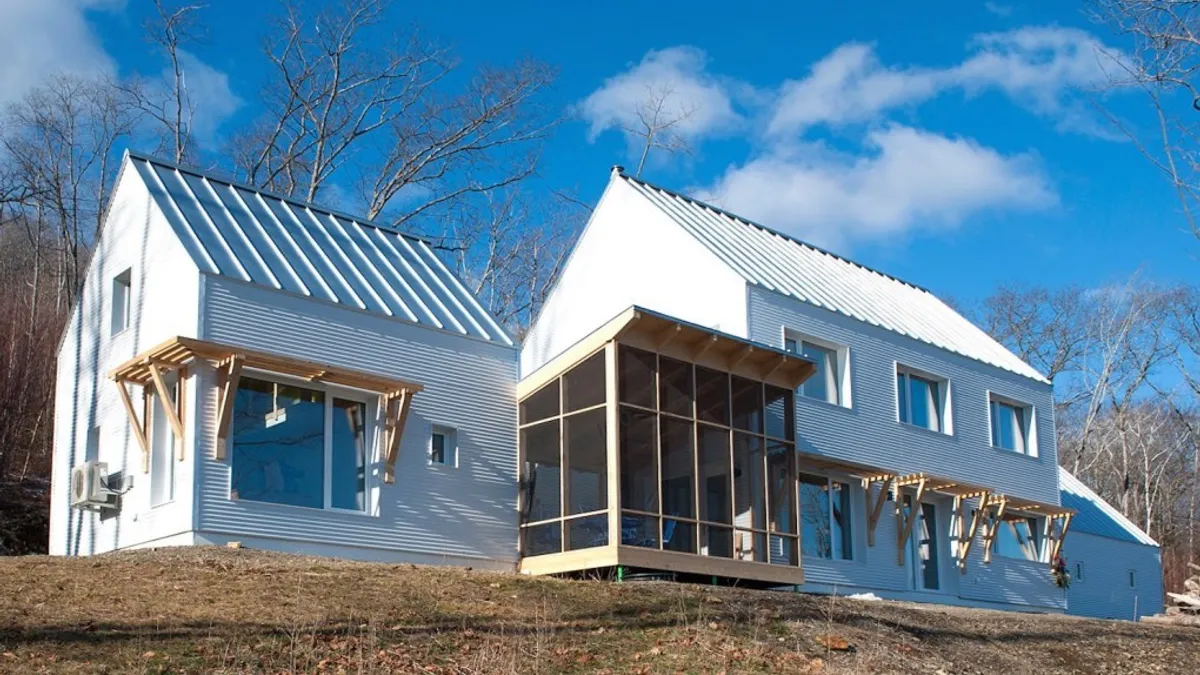Dive Brief:
- California-based prefab homebuilder LivingHomes has made an end run around its supply chain problems by starting a prefab factory, Builder reported.
- LivingHomes officials said the new factory also better meets its quality needs, as many of the manufacturers they used previously had a low-cost, mobile home focus, while LivingHomes specializes in a higher-end, custom product.
- Plant Prefab completed its first 1,700 square-foot model for LivingHomes this year, but company officials said the factory will also take orders from other prefab builders as well.
Dive Insight:
Off-site construction of modular homes is becoming more popular as it is a way to control building quality in a much safer environment than the typical job site. For the sustainability-minded, experts told Construction Dive in May that the off-site construction process also creates less waste.
As far as impact on communities, prefabricated modular homes can also be the answer to the blight caused by abandoned residential developments. In May, Minneapolis startup Smart Homes announced plans to build "urban style" modular homes on residential lots left vacant by the housing crash. The company said it would build at least 15 prefab homes — taking only 45 to 60 days each — for approximately 25% less than it would cost to build traditional homes. In addition to being a potential boon for the company, the Smart Homes move solves the city's problem of lack of development in those areas.
Prefab builders are also targeting other markets, like energy-efficient homes and tiny houses. Ecocor and Richard Pedranti Architect have come up with a line of prefab homes that meet the strict energy efficiency requirements of the "Passive House" standard. The tightly insulated homes with precision air flow range in size from 323 square feet to 2,685 square feet and include Passive House Institute-certified wall assemblies. Tiny houses are probably best suited for prefabrication, given the relatively smaller size of the construction elements required to build them. Just last month, Avava Systems announced that it had developed a tiny house prefab system that is "a completely new way to do prefab." Avava manufactures all the components for a tiny house and then ships them to the building site for assembly in flat-pack boxes. Company officials said the homes cost between $117,000 and $223,000, which includes permitting delivery and construction.








